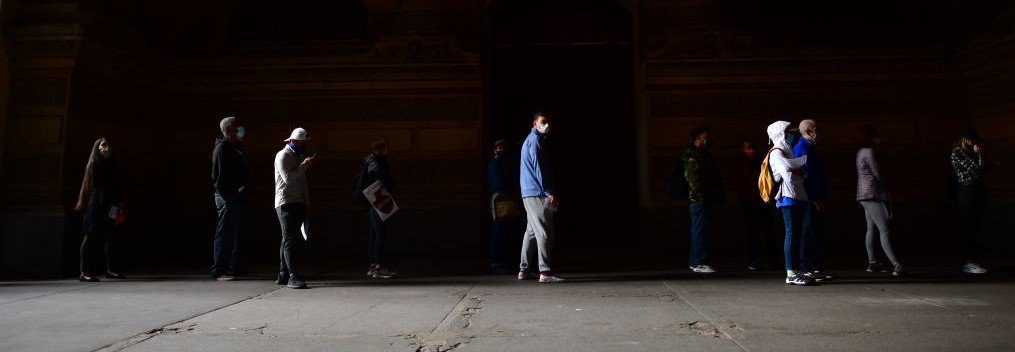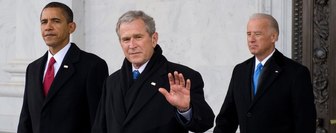This year many Americans have more choices in how they choose to vote. But how difficult has it been, and do voters believe their vote will get counted correctly? The latest Economist/YouGov Poll finds that voters are more confident that their personal vote will get counted properly than they are that the election will be held fairly overall.
About one in ten likely voters say they have little or no confidence their vote will be counted accurately. Those voting for President Donald Trump are less confident than those voting for the Democratic nominee, former Vice President Joe Biden.
There is even greater concern about accurate tallying of the vote among the President’s supporters who are voting by mail. Eight in ten Biden voters casting a mail vote say they have a great deal or quite a lot of confidence their vote will be counted accurately; 58% of Trump mail voters say the same. The President has criticized mail voting, and two-thirds of his supporters disapprove of mail voting (though most (65%) of his voters who will vote by mail approve of the process).
But having your own vote counted doesn’t mean that you believe that the election will be held fairly. On this 42% of likely voters have either “a great deal” or “quite a bit” of confidence that the election will be fairly, with the President’s voters less confident than Biden supporters there will be a fair election (31% vs 50%).
At the very least, voters are largely reporting that the voting process has been easy, or, failing that, convenient. Only 1% of mail voters say the process was difficult; in-person voters are equally positive.
While two-thirds of those intending to vote in person say they would be willing to wait in line “as long as it takes,” relatively few are fortunately asked to commit so much of their time to the democratic process. Nearly two-thirds of those who have voted in person say it took less than half an hour to vote, although almost one in five (18%) report having had to wait more than an hour.
This election there are also bigger risks to waiting in line to vote than losing a chunk of your day. Four in ten of those voting on election day say they are concerned about the spread of COVID-19, and 23% about the threat of violence at the polls. Those who worry are more likely to be Biden supporters: 77% are concerned about coronavirus and 49% violence. Few of those voting to re-elect President Trump are concerned about either of these things impacting their voting experience – only 22% of Trump voters are concerned about COVID-19 and 11% are concerned about violence.
Most voters understand that counting the vote this year may take a while. Only one in three expect to know who won within 24 hours of the polls closing. Half think it will be over within a few days. One in five, however, pessimistically believe it will take at least two weeks.
Three in four are willing to accept however long the counting takes, with Biden voters more willing than the President’s supporters to wait if necessary.
Only a quarter of voters think it is “very likely” that there will be a peaceful transition of power should Biden win, although Trump voters are more likely to think there will be a smooth handoff (39%).
Should the president be re-elected, however, more than eight in ten – Biden supporters as well as Trump voters -- believe there will be protests. Even if Biden won, approaching half (45%) expect there to be demonstrations.
Methodology: The Economist survey was conducted by YouGov using a nationally representative sample of 1,500 registered voters interviewed online between October 25 - 27, 2020. This sample was weighted according to gender, age, race, and education based on the American Community Survey, conducted by the US Bureau of the Census, as well as 2016 Presidential vote, registration status, geographic region, and news interest. Respondents were selected from YouGov’s opt-in panel to be representative of all US citizens. The margin of error is approximately 3.1% for the overall sample.
Image: Getty









